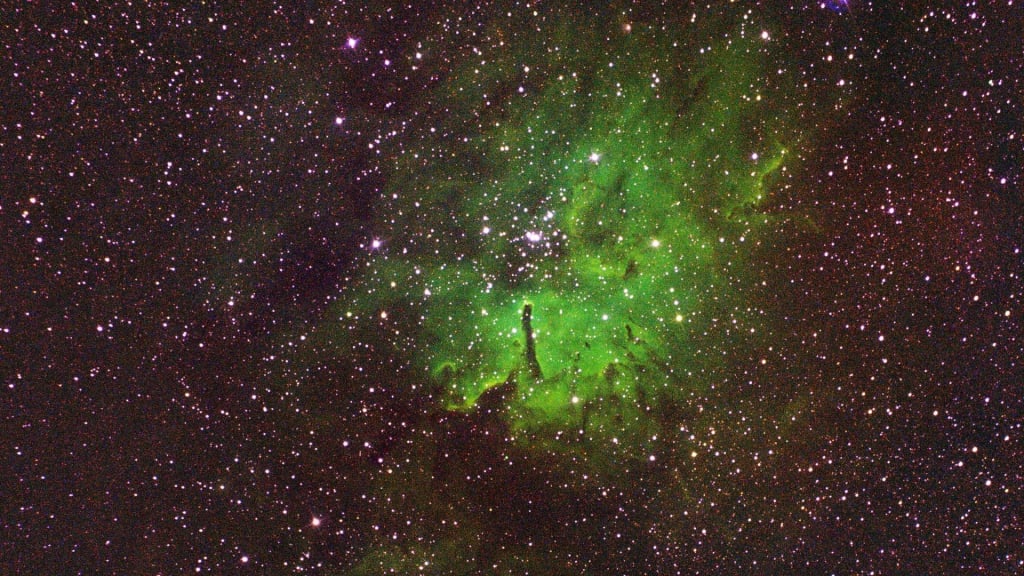Scientists say octopuses are aliens?
Octopus lives well in the ocean, but suddenly it has become the object of controversy. Some people say that it is alien life or that some of its genes come from aliens, and it is not a species born entirely on earth.

Such claims are not groundless or groundless, but they come from scientists. In March 2018, an article titled "Why Life Exploded in the Cambrian -- Earth or the Universe?" appeared. The thesis;
The paper was published by 33 scientists from all over the world, a large number that adds to the paper's impact, and the fact that it was published in the highly respected peer-reviewed journal Advances in Biophysics and Molecular Biology.
After a lot of media reports, the octopus has become the object of public discussion. Some friends said that if it was an alien, I would have eaten an alien already, which sounds like a sense of accomplishment.
In fact, the octopus study is not the main point of the paper. The octopus example is merely used to illustrate the larger question of what caused the Cambrian explosion of life.
The Cambrian Explosion is simply a sudden increase in the variety and abundance of life on Earth about 500 million years ago, but scientists don't know why. Or what's going on?
Because there is no fossil evidence of life on Earth before the explosion, scientists suspect that life on Earth was simply single-celled, or a collection of multicellular organisms, in short, very primitive.
But the sudden increase in fossil evidence of life suggests that life on Earth took a leap forward, and scientists don't know what caused this sudden, explosive increase.
These creatures eventually evolved. And then branched off into all the species on Earth today.
As to why life suddenly burst out, the paper points out that it is the result of interference from alien viruses and bacteria. That is, in terms of life on Earth at that time, there was no sudden leap forward;
However, the explosion of life on the Earth during the Cambrian Period was caused by the impact of an asteroid, which brought alien viruses or life to the Earth and affected the evolution of life on Earth.
In fact, this theory is not the first time in the paper, as early as the 1970s, scientists have proposed that the origin of life on Earth is not local evolution, but from the seeding of extraterrestrial life, this is the so-called panspermia theory.
It means that life came from somewhere, it came from somewhere, it didn't come from nowhere, like life on Earth was brought from an alien planet by an asteroid, it was frozen in an asteroid, it fell to Earth and woke up and evolved.
The main idea of the paper is that it actually cites the panspermia theory, which has been a very important part of the scientific community up to now, and it's been accepted by the scientific community, and that's why we've been looking for signs of life in asteroids in our solar system.
In the paper, the scientists used the magical octopus as an example to prove that the provenance was correct.
Why an octopus? Because it's strange, not just in its appearance, but in the fossil record that genetics and evolution have left behind.
Octopuses are mollusks with no bones in their bodies, but they have a very large brain, are very intelligent, have the ability to use tools and excellent escape ability, can change color camouflage and blend in with the surrounding environment.
Octopuses also have 33,000 protein-coding genes, more than humans. Most importantly, octopus has the ability to edit RNA. We know that the synthesis of proteins in the body is controlled by DNA, but RNA is needed to transmit information from DNA to protein synthesis.
Ultimately, RNA directs the production of proteins, so DNA acts as the factory manager and RNA as the field manager. However, octopuses have the ability to directly command the person in charge of the site over the head of the factory. They can direct and influence the synthesis of proteins by themselves.
That makes it different from other creatures on Earth, and it explains why octopuses don't seem to have evolved much for hundreds of millions of years. Because they have to evolve, just by editing their RNA, to adapt to their environment.
In addition, the researchers cited fossil evidence that single-celled organisms on Earth would have had too little time to evolve into the intelligent, advanced species known as octopuses, leading scientists to conclude that octopuses evolved before they arrived.
In other words, the asteroid came to Earth with the fertilized eggs of an octopus. And of course microbes like bacteria and viruses have also influenced the evolution of life on Earth.
So if that's true, then we humans, and all life on Earth, have the genes of alien life in our bodies. Of course, in the paper the scientists also make this point:
They believe that there are at least 100 billion Earth-like planets in the Milky Way galaxy, all of which could support life, all of which are promising places for life;
And the rocks on these planets could have been carried into outer space by impacts (Martian meteorites have been found at Earth's South Pole), or asteroids could have skimmed through the upper atmospheres of these planets, removing microbes from the atmosphere.
These life-bearing asteroids will drift around the galaxy, and they will be captured by other objects, and if that object is suitable for life, then life will take root.
Like our planet has been hit by a lot of asteroids in its history, it's inevitable that some of these asteroids will contain frozen microbes or even fertilized eggs.
When they fell to Earth, they led to the rapid evolution of life on Earth.
The origin of life is still a big mystery, and until it is solved, any speculation is possible. Maybe life really did evolve locally on Earth, or maybe the Cambrian explosion was the result of evolution on Earth itself;
The reason for the sudden increase in life is simply that we have yet to discover it.
But it doesn't rule out extraterrestrial influences on life. If that's the case, then we were right about the octopus.






Comments
There are no comments for this story
Be the first to respond and start the conversation.